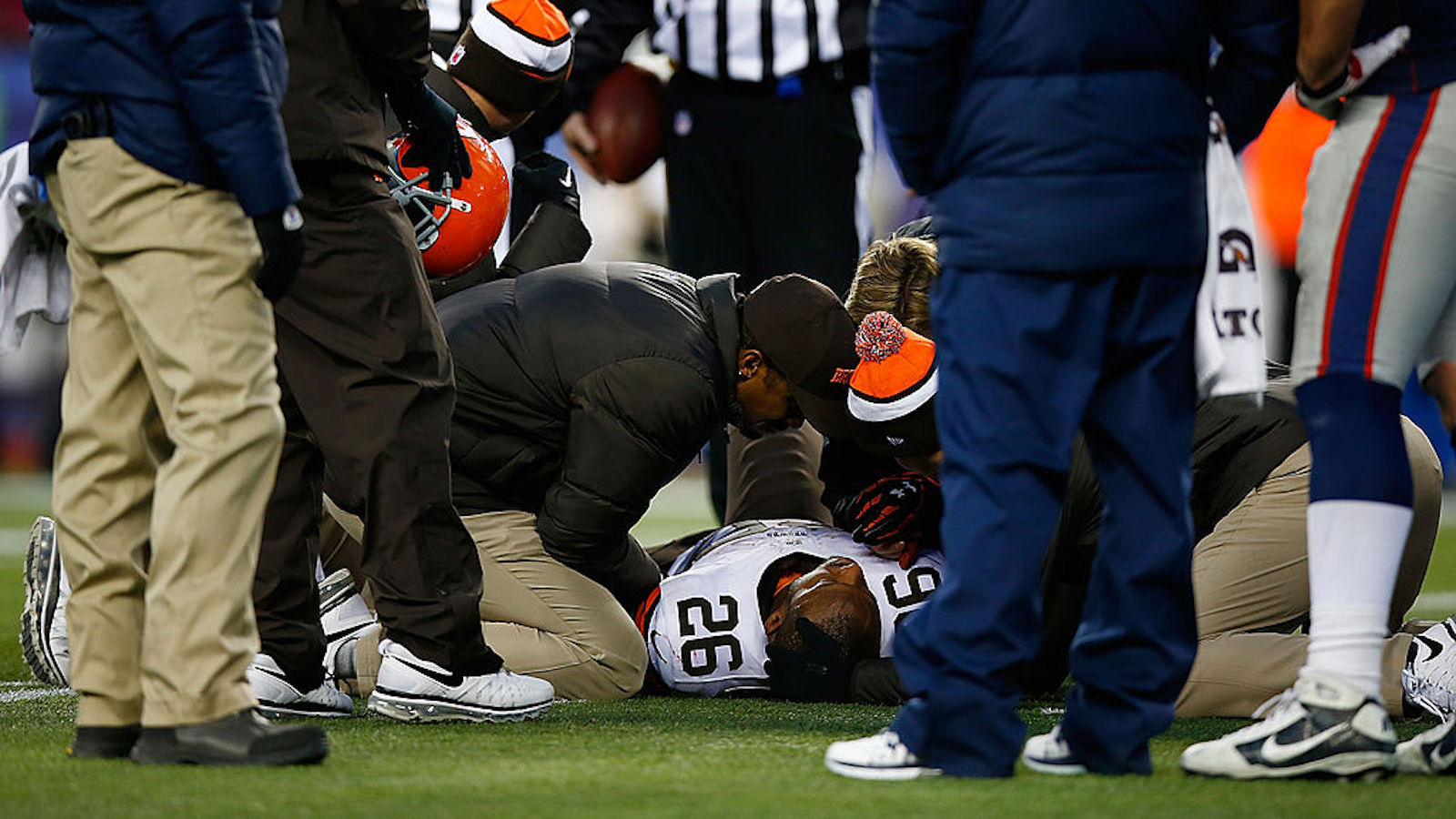Nora Princiotti's trenchant analysis of how the NFL has outgrown the concept of good vs. evil by brazenly improving the processes by which it manufactures the nation's heroin was chilling enough on Monday, when it was published. Three days later, it seems even more depressing than that.
A lawsuit filed by 10 former players, including former pro-bowler Wilis McGahee, in U.S. District Court in Baltimore accuses the NFL of creating a byzantine system by which players are steered to financially compromised doctors who in some cases collect hundreds of thousands of dollars per year from a healthcare plan controlled by the league and the players' union, and who fail to find players disabled at exceedingly high rates.
The lawsuit comes on the heels of an enraging investigation from The Washington Post's Will Hobson, which details the ways in which the league and the union have gone about denying disability benefits to former players over the last decade-plus. The story includes one federal judge telling the panel that administers the league's plan that its decision to deny disability benefits to one player “defies all reason and common sense.” Another federal judge said that the denial of disability claims was part of "a larger strategy engineered to ensure that former NFL players suffering from the devastating effects of severe head trauma are not awarded."
This would be fairly horrifying at any time of year, and filing the lawsuit today would seem at first glance to be a grand way to capitalize on our obsession with football by using its biggest week to make us see how the sausage is ground. But as Princiotti points out, the league has already gone through what would be considered a disastrous year for news, and only gets bigger with every passing development. It almost seems like it has developed a process for taking evil and turning it into sustenance, with the nation's acquiescence and even tacit approval. In other words, people still eat sausage.
This is not a new development, although the union's alleged role in helping deny player disability claims is a fascinating twist that largely reveals its greatest vulnerability—a huge judgment against it could force insolvency while the 32 owners blow their noses into nine-figure checks. The league's long-established smugness in the face of legal issues is well-earned, as it simply looks at the audience, taps a vein in the crook of its arm, and sends the signal to everyone that says, We've got your medicine here, so don't bother yourself with details of how we treat players who can't play anymore. Or really, any of the myriad of other ways that it wins coming and going, in victory and in defeat.
Against this static, the NFL and the Super Bowl that allows it to seize the attention of even non-sports fans merely shrugs and moves on, a leviathan that must concern itself with nothing and nobody. It has paid off similar lawsuits in the past and will pay off this one at pennies on the dollar if things become inconvenient in court. It regards these matters as the stuff of small yappy dogs, merely because it can.
If the Super Bowl serves as a metaphor for anything (and if you give it time it will be used as a metaphor for everything), it is that the idea of rebelling against the league's modes of doing its business seems infinitely more daunting than merely suing it for medical benefits in a rigged system it created.
Football eats its young and old alike. Of course the NFL would create a system whereby it is judge and jury of the damage it inflicts upon its own, and then rules that it doesn't have to pay for it. That level of amorality and system-gaming is expected, and being reminded of it during Super Bowl week is no more strategic than being reminded of it on Christmas Eve.
The world marches on, and while you can root for the plaintiffs to win all the money there is, even in victory they will end up losing because the league will find ways to delay what they are now denying. Being reminded of how the league handles these things during Super Bowl Week may be instructive to some of us, but it is also inconvenient because it gets in the way of the party. We hope for good to triumph but our rooting interest is always conditional, because the party is dependent on the evildoers providing the pretext for the party in the first place.






